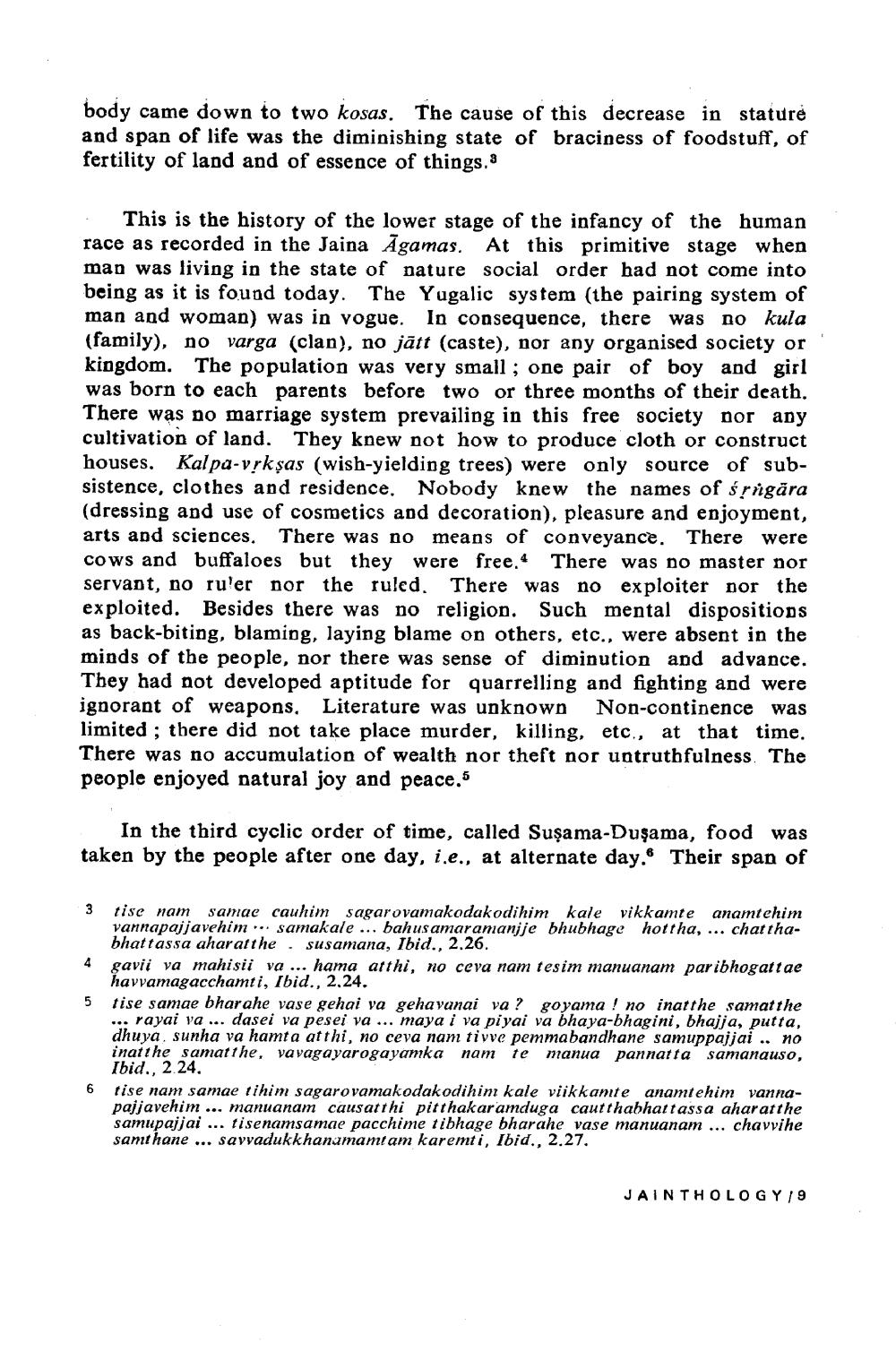________________
body came down to two kosas. The cause of this decrease in stature and span of life was the diminishing state of braciness of foodstuff, of fertility of land and of essence of things. 8
- This is the history of the lower stage of the infancy of the human race as recorded in the Jaina Āgamas. At this primitive stage when man was living in the state of nature social order had not come into being as it is found today. The Yugalic system (the pairing system of man and woman) was in vogue. In consequence, there was no kula (family), no varga (clan), no jātt (caste), nor any organised society or kingdom. The population was very small; one pair of boy and girl was born to each parents before two or three months of their death. There was no marriage system prevailing in this free society nor any cultivation of land. They knew not how to produce cloth or construct houses. Kalpa-vrksas (wish-yielding trees) were only source of subsistence, clothes and residence. Nobody knew the names of śrågara (dressing and use of cosmetics and decoration), pleasure and enjoyment, arts and sciences. There was no means of conveyance. There were cows and buffaloes but they were free. There was no master nor servant, no ruler nor the ruled. There was no exploiter nor the exploited. Besides there was no religion. Such mental dispositions as back-biting, blaming, laying blame on others, etc., were absent in the minds of the people, nor there was sense of diminution and advance. They had not developed aptitude for quarrelling and fighting and were ignorant of weapons, Literature was unknown Non-continence was limited; there did not take place murder, killing, etc., at that time. There was no accumulation of wealth nor theft nor untruthfulness. The people enjoyed natural joy and peace.5
In the third cyclic order of time, called Suşama-Duşama, food was taken by the people after one day, i.e., at alternate day. Their span of
3
5
tise nam samac cauhim sagarovamakodak odihim kale vikkamte anamtehim vannapajjavehim .. samakale ... bahusamaramanjje bhubhage hottha, ... chatthabhattassa ahar at the susamana, Ibid., 2.26. gavii va mahi sii va ... hama atthi, no ceva nam tesim manuanam paribhogattae havvamagacchamti, Ibid., 2.24. tise samae bharahe vase gehai ya gehavanai va ? goyama ! no inatthe samat the ... rayai va ... dasei va pesei va ... maya i va piyai va bhaya-bhagini, bhajja, putta. dhuya sunha va hamta atthi, no ceva nam tivve pemmabandhane samuppajjai .. no inatthe samatthe, vavagayarogayamka nam te manua pannatta samanauso, Ibid., 2.24. tise nam samae tihim sagaro vamakodak odihim kale viikkamte anamtehim vannapajjavehim ... manuanam causatthi pitthakaramduga cautthabhat tassa aharat the samupajjai ... tisenamsamae pacchime tibhage bharahe vase manuanam ... chavvihe samt hane ... savvadukkhanamamtam karemti, Ibid., 2.27.
JAINTHOLOGY,9




